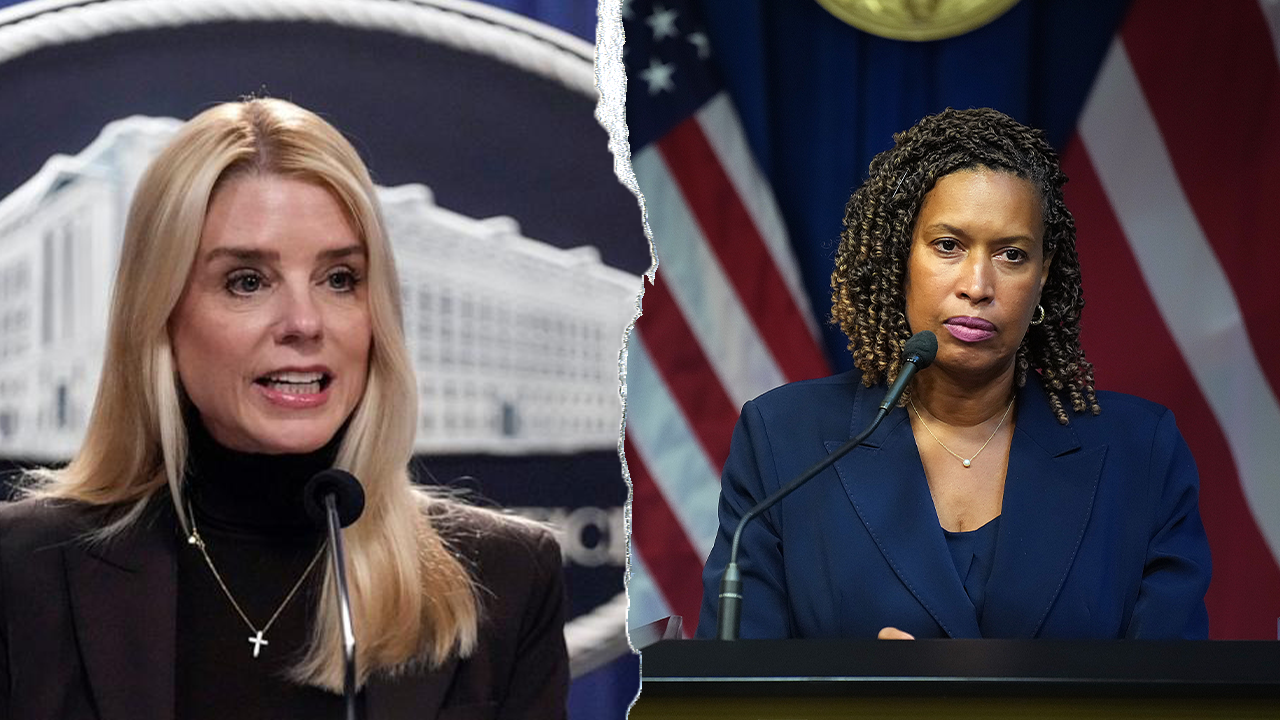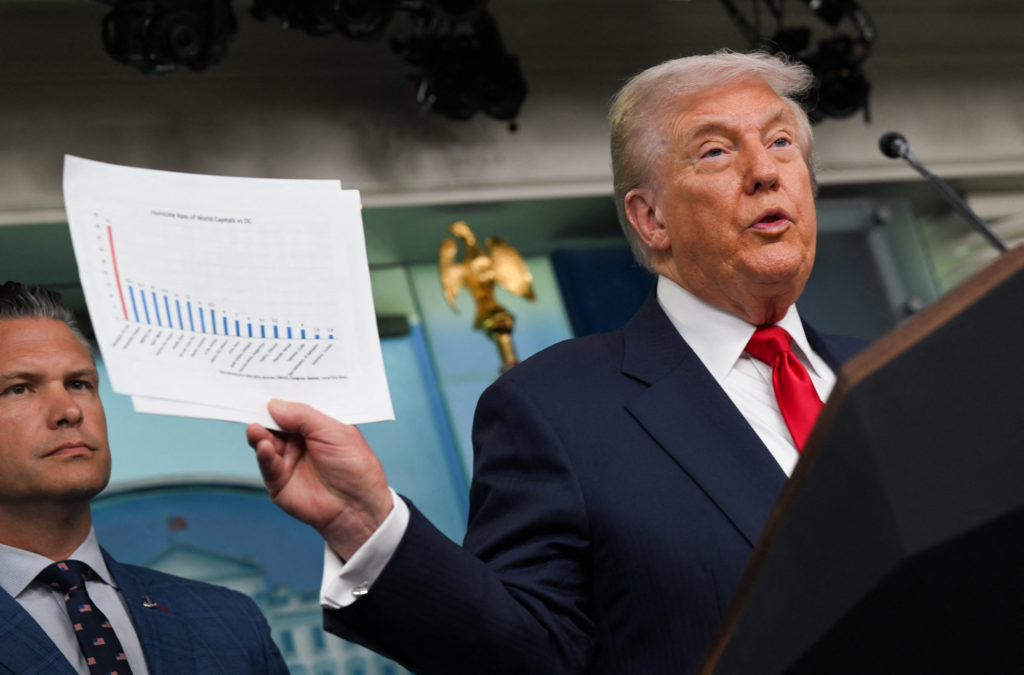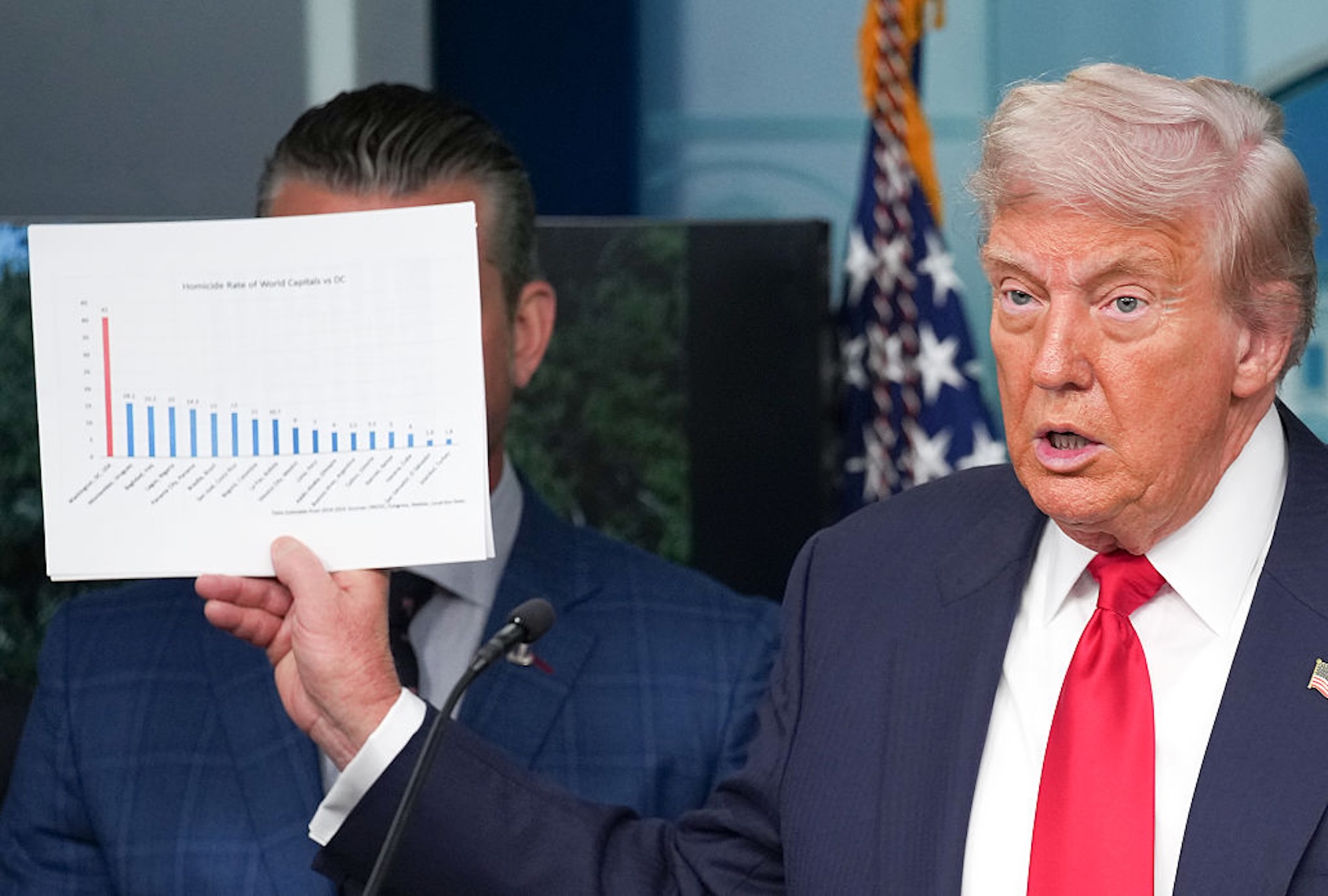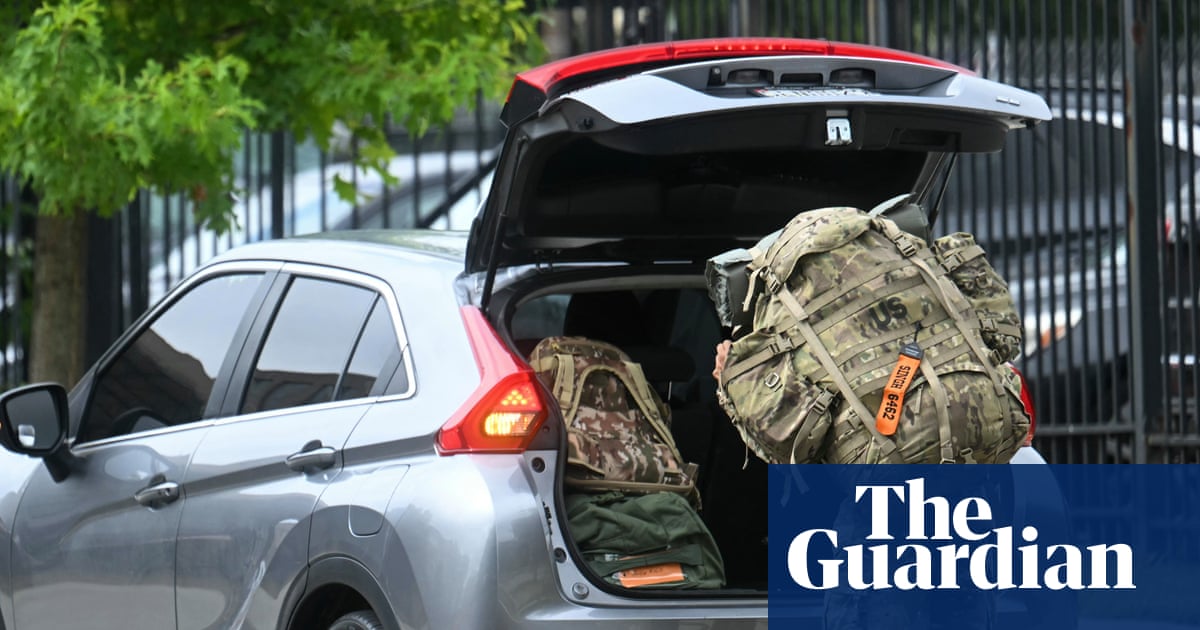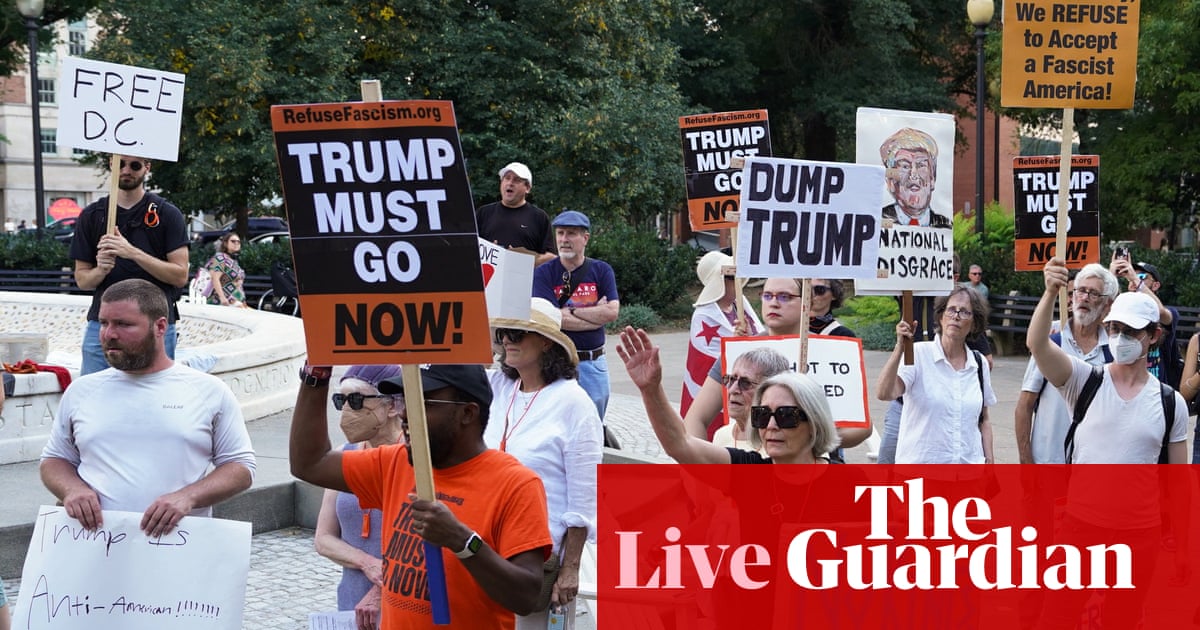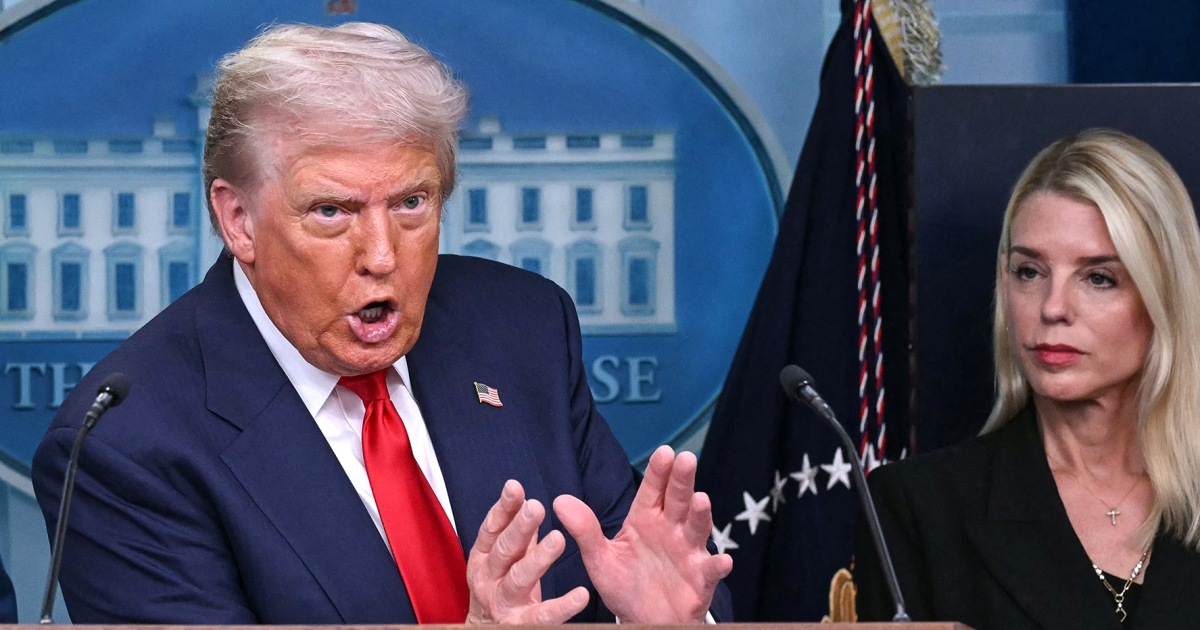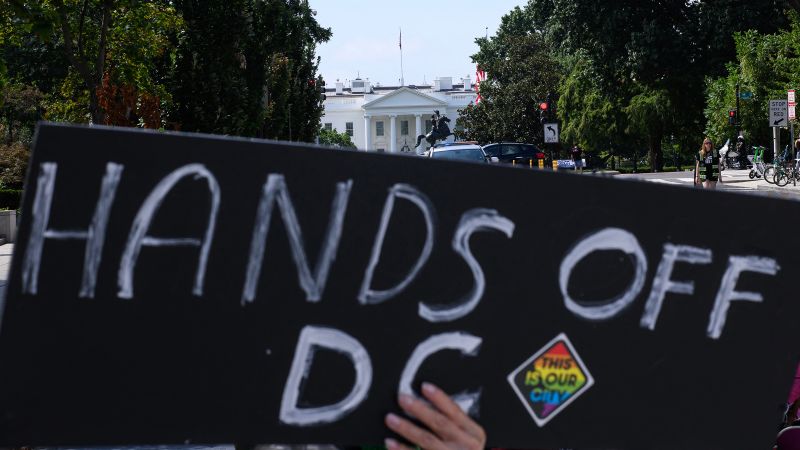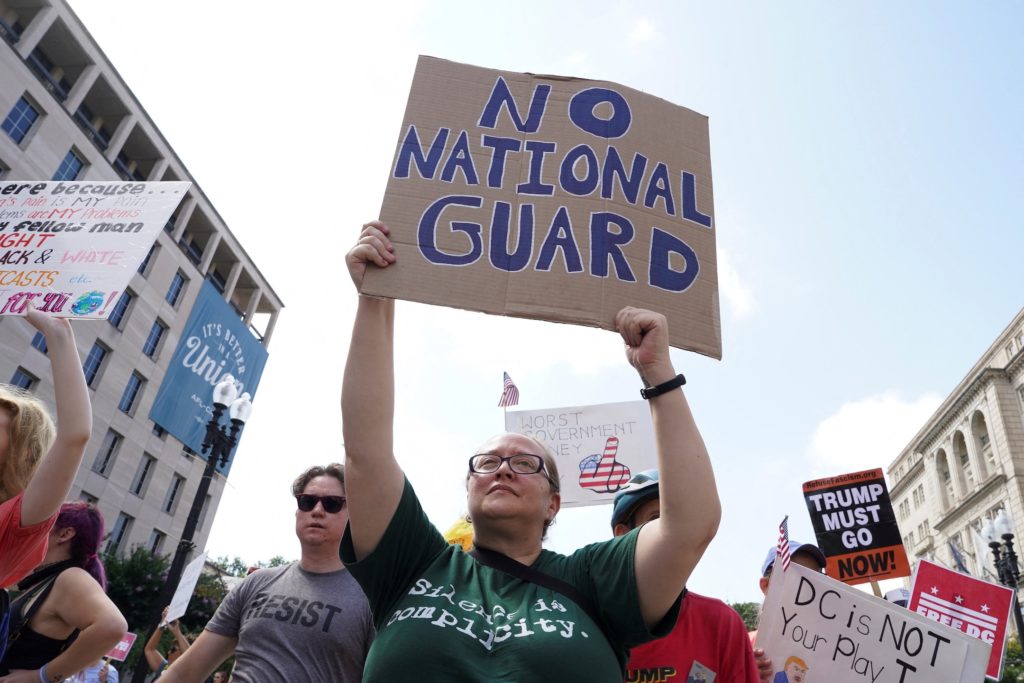D.C. Battles for Statehood Amidst Federal Intervention and Crime Reduction
Mayor Muriel Bowser advocates for D.C. statehood and local control, countering President Trump's attempts to federalize the police, while announcing a significant drop in violent crime.
Subscribe to unlock this story
We really don't like cutting you off, but you've reached your monthly limit. At just $5/month, subscriptions are how we keep this project going. Start your free 7-day trial today!
Get StartedHave an account? Sign in
Overview
- Mayor Muriel Bowser is actively advocating for full statehood for Washington, D.C., emphasizing the critical importance of residents' access to democracy and self-governance for the capital city.
- President Trump deployed the National Guard and attempted to federalize D.C.'s Metropolitan Police Department, citing efforts to combat crime and assert federal authority within the District.
- Mayor Bowser and D.C. officials strongly condemned President Trump's executive order to federalize the capital, viewing the unprecedented move as unsettling and a direct challenge to local authority.
- Despite federal intervention attempts, Mayor Muriel Bowser and MPD Chief Pamela Smith affirmed their continued control over the Metropolitan Police Department, maintaining D.C.'s local authority.
- Amidst ongoing tensions regarding federal oversight, Mayor Muriel Bowser announced that violent crime in Washington, D.C., has reached a 30-year low, decreasing by 26% from the previous year.
Report issue

Read both sides in 5 minutes each day
Analysis
Center-leaning sources frame President Trump's D.C. police takeover as an unwarranted, politically motivated action, despite declining crime rates. They emphasize expert and official skepticism, highlighting confusion, ineffectiveness, and the move's connection to historical "law and order" rhetoric often associated with racist narratives about urban areas.
Articles (21)
Center (3)
FAQ
Washington, D.C.'s statehood effort involves legislation known as the Washington, D.C. Admission Act (H.R.51), which proposes creating the state of 'Washington, Douglass Commonwealth.' This bill excludes a 2-mile radius area including federal buildings (White House, Capitol, etc.) to remain the seat of federal government while the rest becomes the new state with equal rights including congressional representation and the mayor becoming governor. The bill has been introduced with multiple co-sponsors and requires passage by Congress and the President's signature. A commission has been formed to advise the transition process.
Despite President Trump's executive order attempting to federalize the Metropolitan Police Department and deploy the National Guard, Mayor Muriel Bowser and MPD Chief Pamela Smith affirmed that local control over the police department remains intact. They strongly condemned the federal intervention as a challenge to local authority, emphasizing the importance of maintaining D.C.'s self-governance.
Mayor Muriel Bowser announced that violent crime in Washington, D.C. has dropped to a 30-year low, with a 26% decrease from the previous year, demonstrating improvement in public safety despite ongoing tensions over federal oversight and efforts towards statehood.
The primary challenges include securing majority support in both chambers of Congress and obtaining the President's signature. The movement faces resistance due to constitutional concerns, political opposition, and the unique status of D.C. as the nation’s capital, especially regarding federal jurisdiction over key government sites excluded from statehood.
If D.C. becomes a state, the remainder federal district would be much smaller but currently retains electoral votes under the Twenty-third Amendment. The Admission Act includes provisions to repeal this amendment to resolve discrepancies. The new state would gain one representative and two senators in Congress, thereby increasing its political representation significantly compared to its current non-voting delegate.
History
- 3M

 6 articles
6 articles
- 3M

 4 articles
4 articles
- 3M

 3 articles
3 articles
- 3M

 4 articles
4 articles
